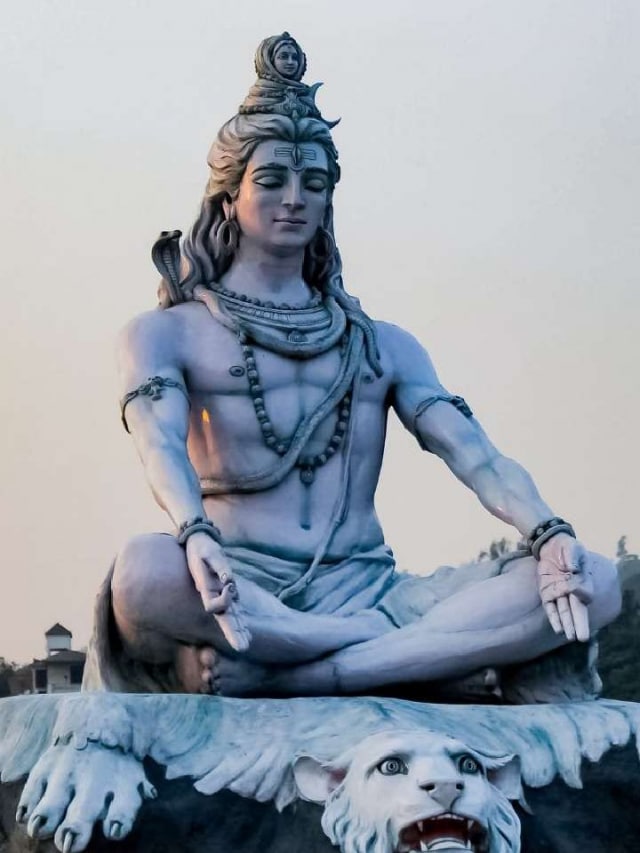
“Working with Aamir Khan Productions is always a wonderful experience” – Ram Sampath
Ram Sampath has had a long-standing working relationship with Aamir Khan Productions. Every time, the composer and the production house came together for a project, one got to hear music that was well-crafted and memorable. The music, which Ram has created for films like ‘Peepli [Live]’, ‘Delhi Belly’ and ‘Talaash: The Answer Lies Within’ and the TV show ‘Satyamev Jayate’, has stood the test of time. Recently, Ram collaborated with Aamir Khan Productions on ‘Laapata Ladies’. Both the songs and the score, put together by Ram, left a mark. The film, after a succesful theatrical run, started streaming on Netflix recently.
In this interview, Ram talks about why he enjoys working with Aamir Khan, the process of creating the soundscape for ‘Laapataa Ladies’, collaborating with Kiran Rao, working with Arijit Singh for the first time, upcoming projects and more.
How was it collaborating with Aamir Khan Productions after a while?
Working with Aamir Khan Productions is always a wonderful experience. We have always got along well. We have the same set of values and by and large, our aesthetics align. When I work with them, I know things will fall into place smoothly.
‘Laapataa Ladies’ was set in the year 2001. Did you have to keep this in mind while creating the soundscape for the film?
No! As a composer, I aim to create timeless music. It is also a film that is kind of timeless. The film tells a story which was relevant twenty years before the time it is set in and reflects what women, in several parts of the country, have to go through even today. That is one of the reasons why the film could connect to a wide audience. As far as my music is concerned, I don’t like it to age in a trendy way. I prefer my music not having very strong trendy vibes to it. Since it was a film set in rural India, I had to keep that in mind while composing the music.
Barring ‘Dheeme Dheeme’, all the tracks in the film have a duration of less than three minutes. Why did you decide to keep the songs short?
These days, people listen to really short songs on streaming services. The average length of songs has been going down. The usage of songs in films is a lot more restricted now. When you are making a romantic drama or a romantic comedy, you use songs to say a lot of things. However, in most other films, songs tend to come in the way of the screenplay.
In an interview, Aamir Khan stated that his favourite song from the film is ‘Dheeme Dheeme’. Do you have a favourite?
In terms of composition, it has to be ‘Dheeme Dheeme’. The songs we have on the film were difficult to craft. Without having the lyricists on board, I don’t think I would have been able to craft these songs so well. Divy Nidhi (Sharma) did such a brilliant job with ‘Doubtwa’. “Dil karta hai shoutwa, ee kanya pe duobtwa…”, the line is so perfect for what the situation requires. I have always had an affinity towards lyrics which stay true to the theme of the film and its characters. These days, most people are trying to come up with hooklines. The songs have to carry the film in them. ‘Doubtwa’ reflects the mind of Manohar. There are other POVs coming in as well. Every woman who speaks her mind and has own ideas is seen with a bit of suspicion. ‘Beda Paar’ is very tightly connected to the film. It shows Phool’s perspective and how she feels about the world around her. There is a certain simplicity in it. The language is very simple.
‘Sajni’ marked your first collaboration with Arijit Singh.
It was a pleasure working with Arijit. I had been wanting to work with him for a while. Arijit told me he loved ‘Jee Le Zara’ and wished he had got the opportunity to sing it. I am glad we could work on ‘Sajni’ together. He is an extremely hard-working and humble person and a pure soul. He is as fine a human being as he is a singer. That is a very rare trait in today’s day and age. Arijit tends to record in his own studio in Murshidabad and send the track to the composer. I thought he would share a take or two. He shared ten takes with me. He told me, “Ram sir, maine gaaya toh hai. Aap chun lijiye, aap ko job hi achcha lage”. That itself shows the kind of artist he is. It is so wonderful to work with artists like him.
He sounds very different from his usual self in this song.
With every composer, a singer gets a different colour, flavour and texture to explore. Kiran and Aamir had a very specific idea on how they wanted him to sound. We wanted him to sing without a lot of extroverted projection. We did not want any smile in his voice. We wanted a certain kind of melancholy in his voice. I really believe that to be a great vocal artist, you have to be a great actor. Arijit is a great actor.
The other singers, too, have been cast appropriately.
That was the challenge as well. ‘Dheeme Dheeme’ is the song that is the closest to our hearts. ‘Dheeme Dheeme’ and ‘Beda Paar’ do not feature in the film prominently. ‘Beda Paar’ is the beginning of the story and then, everything changes. ‘Dheeme Dheeme’ is the end of the story when everything resolves. It was interesting to create that kind of structure. Every film’s music comes with its graphs and bookends.
Working with Shreya (Ghoshal) was an absolute delight as she is one of the greatest singers of all time. Working with her feels like magic. You are watching everything happening in front of your eyes but find it difficult to believe. She makes everything look effortless. We had worked years back on ‘Waada Raha’ and ‘Dil Dooba’ from ‘Khakee’. At that time, she was just starting her career. We have done another song which should come out later this year. Sukhi paaji (Sukhwinder Singh) puts everything through what I call the ‘Sukhwinder filter’. He is one of the best singers we have had. The last time I worked with these incredible voices was years back.
You have worked with Swanand Kirkire earlier on ‘Satyamev Jayate’. You had also collaborated with him on a campaign on Kotak Mahindra Bank.
Swanand is a master at the craft of writing songs. It is always a pleasure working with him. Swanand is busy with so many things. I am glad he could make the time to write ‘Dheeme Dheeme’. When everything else fails, we turn to Swanand (laughs). Divy Nidhi was one of the writers on the film. He is such a smart wordsmith. There is something so clever about the way he has written the song. He crafted it wonderfully around Ravi Kishan’s character.
I met Prashant (Pandey) for the first time just before the release of the film. We worked online on this film. He is a lyricist who reached out to me on social media. I really liked his work. Since we could not get one lyricist to commit to us and give the time required for the project, we decided to break it up and get the songs written by different writers. We were looking for a sense of sophisticated simplicity in the writing of the songs. The songs have a sense of simplicity to them. Prashant conveyed the emotion of ‘virah’ so beautifully in ‘Sajni’. I love the antara of ‘Beda Paar’. “Angana mein ped wahaan hoga ki nahin, hoga toh jhoola uspe hoga ki nahin….”, the lyrics suited the film very well. Prashant is a find for the industry. I hope he goes on to do many more songs.
Some of the music pieces heard in the songs are very memorable.
The opening of ‘Doubtwa’ is like a ‘70s song. It is full of suspicion. All of that is a part of the score. Three is a coda in ‘Sajni’. I have been hugely inspired by the way greats like Kalyanji – Anandji and Madan Mohan used music pieces in their songs. Apart from the words, the music pieces, too, bring a certain flavour to the songs.
This was the first time you scored the music of a film directed by Kiran Rao.
Kiran is one of the best directors I have worked with. I am one of those many people who had been wanting her to make films much more frequently. She is a highly skilled director and knows exactly what she wants. We have been friends for years. We had a great time working on the music of the film. She also pushed me to do a lot of things differently. Where we would normally use strings, we have used a lot of harmonium. We have used distorted mandolin in places one would use electric guitars. We tried to keep it warm and organic.
Apart from doing all the songs, you have done the background score as well. How long did the entire process take?
It’s all intertwined and a part of the same process. I composed ‘Dheeme Dheeme’ before the shoot started. I composed it around a week after hearing the script for the first time. After that, I started writing pieces for the background score. ‘Beda Paar’ came out of that process. I love it when a film has one sound, one vibe and one aesthetic that is connecting everything. I hate it when the score sounds like something and the songs sound like something else.
These days, a lot of films have multiple composers working on different songs.
That’s exactly my point! Everybody working at Aamir Khan Productions understands the importance of having one composer on a film. This is one of the reasons I like working with them. When a film has too many composers working on it, the overall soundscape feels disjointed.
One of your upcoming projects is Abhinay Deo’s ‘Doosra’. The film has been ready for a while.
Hopefully, it will come out this year. I am working on another film that is being produced by Aamir Khan Productions. A formal announcement about it should be made soon.
Publisher: Source link
